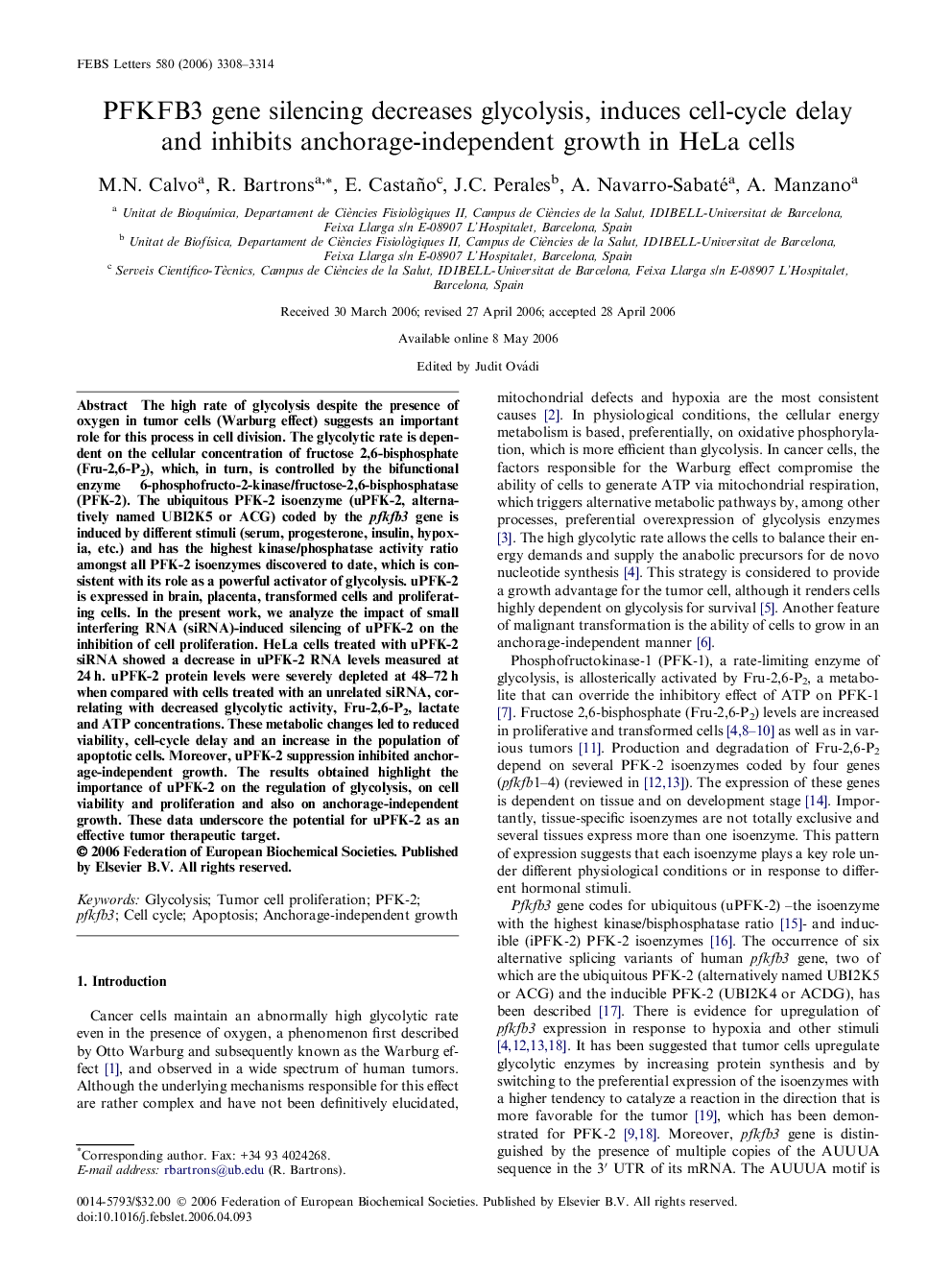| کد مقاله | کد نشریه | سال انتشار | مقاله انگلیسی | نسخه تمام متن |
|---|---|---|---|---|
| 2052623 | 1074234 | 2006 | 7 صفحه PDF | دانلود رایگان |

The high rate of glycolysis despite the presence of oxygen in tumor cells (Warburg effect) suggests an important role for this process in cell division. The glycolytic rate is dependent on the cellular concentration of fructose 2,6-bisphosphate (Fru-2,6-P2), which, in turn, is controlled by the bifunctional enzyme 6-phosphofructo-2-kinase/fructose-2,6-bisphosphatase (PFK-2). The ubiquitous PFK-2 isoenzyme (uPFK-2, alternatively named UBI2K5 or ACG) coded by the pfkfb3 gene is induced by different stimuli (serum, progesterone, insulin, hypoxia, etc.) and has the highest kinase/phosphatase activity ratio amongst all PFK-2 isoenzymes discovered to date, which is consistent with its role as a powerful activator of glycolysis. uPFK-2 is expressed in brain, placenta, transformed cells and proliferating cells. In the present work, we analyze the impact of small interfering RNA (siRNA)-induced silencing of uPFK-2 on the inhibition of cell proliferation. HeLa cells treated with uPFK-2 siRNA showed a decrease in uPFK-2 RNA levels measured at 24 h. uPFK-2 protein levels were severely depleted at 48–72 h when compared with cells treated with an unrelated siRNA, correlating with decreased glycolytic activity, Fru-2,6-P2, lactate and ATP concentrations. These metabolic changes led to reduced viability, cell-cycle delay and an increase in the population of apoptotic cells. Moreover, uPFK-2 suppression inhibited anchorage-independent growth. The results obtained highlight the importance of uPFK-2 on the regulation of glycolysis, on cell viability and proliferation and also on anchorage-independent growth. These data underscore the potential for uPFK-2 as an effective tumor therapeutic target.
Journal: FEBS Letters - Volume 580, Issue 13, 29 May 2006, Pages 3308–3314